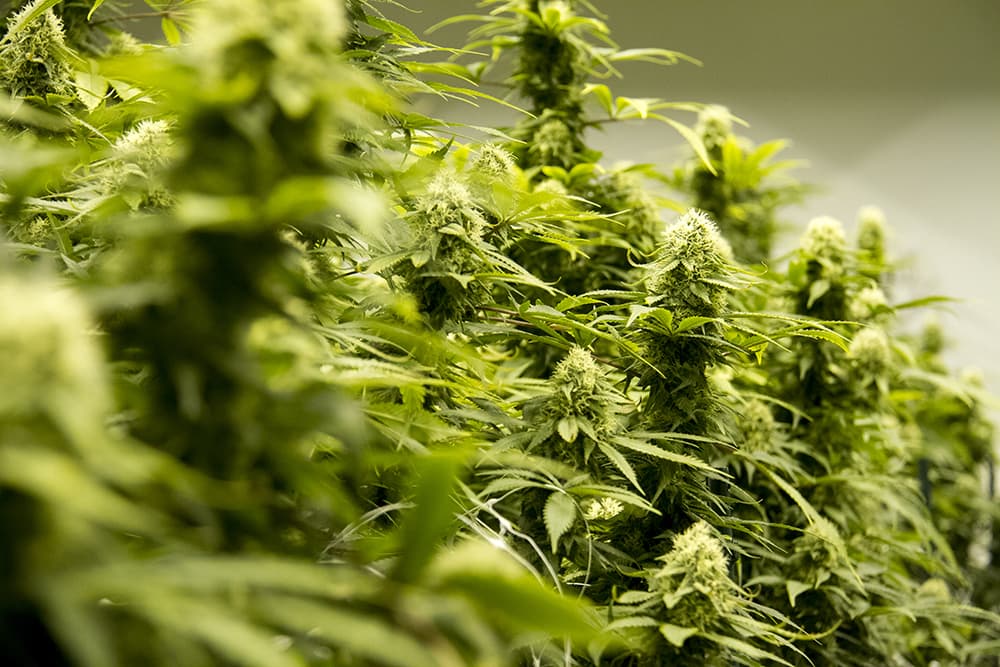
Under a Denver Water proposal, cannabis growers in Colorado could be the among the first in the nation to water their plants with recycled wastewater.
Denver Water has been recycling water at a special treatment plant in Commerce City since 2004. The process takes treated wastewater and sends it through various filters and devices before it's disinfected with chemicals. It's delivered through a system of purple pipes.
The resulting recycled wastewater can only be used for certain uses -- it's not considered to be drinkable -- that are set by state law. In Denver, it irrigates golf courses and parks, and it's used in exhibit pools at the Denver Zoo, among other applications.
Now, the utility wants to run its purple recycled-water pipes to marijuana grow operations, which would get discounts for using it -- but only if regulators approve.
In other states, recycled water is used on food crops.
Denver Water has been steadily improving the quality of its recycled water, reaching the state's highest category in 2009.
Last year, it proposed to allow reclaimed water on a range of edible crops, but it has narrowed that down to indoor cannabis cultivation for both retail and medical uses. The city also wants to allow recycled water in toilets and urinals.
Florida, Arizona, Texas, Washington, and California all have used recycled water on food crops, such as artichokes, oranges and strawberries, according to a white paper from Denver Water. (However, recycled water comes in varying qualities.)
Use of recycled water on cannabis appears to be rare or even nonexistent so far.
California officials are "not aware of anyone using recycled water to irrigate their cannabis crop," according to a spokesman for the State Water Resources Control Board, but the state would not prevent them from doing so as long as the water met certain criteria.
Denver Water thinks this could save millions of gallons.
Marijuana growers use a lot of power and a fair amount of water. Denver Water estimates that the city's cannabis grows could use about 400 acre-feet of recycled water per year, or about 130 million gallons.
If that happened, it would free up the same amount of water in the region's limited fresh-water supply -- enough to supply about 1,600 households, according to Denver Water.
However, businesses would not be forced to use recycled water. Instead, Denver Water offers discounts to customers that use non-potable water.
"Also, the sustainability ethic is prominent in many cannabis operations and could be a driver for producers to use it," wrote spokeswoman Stacy Chesney.
What's next?
The Colorado Department of Public Health and Environment is reviewing the proposal and a decision could come this summer.
Use of the treated wastewater has faced questions here in Denver. Alan Prendergast in 2015 reported for Westword that recycled water could be hurting trees because it includes too much sodium. Parks management at the time said recycled water could be one of a few causes.
Activists also claimed a victory when the Denver Zoo agreed to stop feeding recycled water to elephants, citing federal guidelines. Among their concerns: Denver's wastewater includes relatively small amounts of groundwater from the Lowry Landfill.
"Someday it will get to the point that you can drink almost any water, but it depends on the source of water," said Larry Ambrose, one of the local activists who has consistently questioned recycling water use. EPA monitoring of the site suggested that it posed "no identifiable risk," Prendergast reported.
Denver Water is working with various groups to take any potential risks into account, according to its spokeswoman.
"We are in the early stages of the stakeholder process to consider these new uses for recycled water," Chesney wrote to Denverite. "The intent of the process is to take community input, including work with public health experts. The process will help inform our final recommendations to CDPHE."












